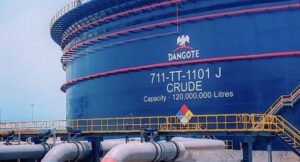
Manufacturers spend N60bn on alternative energy in six months – MAN
Manufacturers spent at least N60.4billion on alternative energy sources in the first half of 2023, according to the Manufacturers Association of Nigeria.
MAN, in its Half Yearly Economic Review, published recently, said that was 21.25 per cent from the N76.7bn spent on alternative energy in the same period in the prior.
It attributed the decrease in manufacturers’ expenditure on alternative energy sources to the rise in electricity supply to the industries from the national grid in the first half of this year to 11.3 hours per day from 10.2 hours recorded in the same period of 2022.
It added that the electricity supply also increased by 42 minutes when compared with 10.6 average hours per day of electricity supply in the corresponding period of last year.
The report read partly, “In the same vein, the average number of outages per day increased marginally to 4.7 times from 4.4 times in the first half of 2022.
“Consequently, expenditure on alternative energy sources declined to N60.4bn in the first half of 2023 from N76.7bn recorded in the second half of 2022, thus indicating N16.2bn or 21.2 per cent decrease in the period. It also declined by N7.3bn or 10.8 per cent from the N67.8bn recorded in the same period of 2022.”
The expenditure on alternative energy was linked to increasing diesel prices that had reportedly impacted negatively on the production capacity of many manufacturing entities.
Last month, oil marketers said the foreign exchange crisis in the country and the recent implementation of a 7.5 per cent Value Added Tax on Automotive Gas Oil, popularly called diesel, had pushed up the cost of the commodity to between N900 and N950/litre in many states.
Local manufacturers claimed that the development may lead to the closure of some factories and job losses.
While reacting to the development, the Director-General of the Nigerian Textile Manufacturers Association, Hamma Kwajaffa, said several textile manufacturers were contemplating shutting down their operations owing to rising costs, largely caused by skyrocketing energy costs.
The DG said textile manufacturers could not afford to buy diesel at the projected price of N950.
He said, “Many are contemplating closing for now. We can’t meet up with that kind of amount. We have less than 24 textile (firms) today; those that are working are contemplating closure. They have been pushed to the wall. These businesses are not in charity. They have to break even.”
In the same vein, the Chief Executive Officer of Coleman Technical Industries Limited, George Onafowokan, said increased diesel costs implied increased cost of production for the company.



